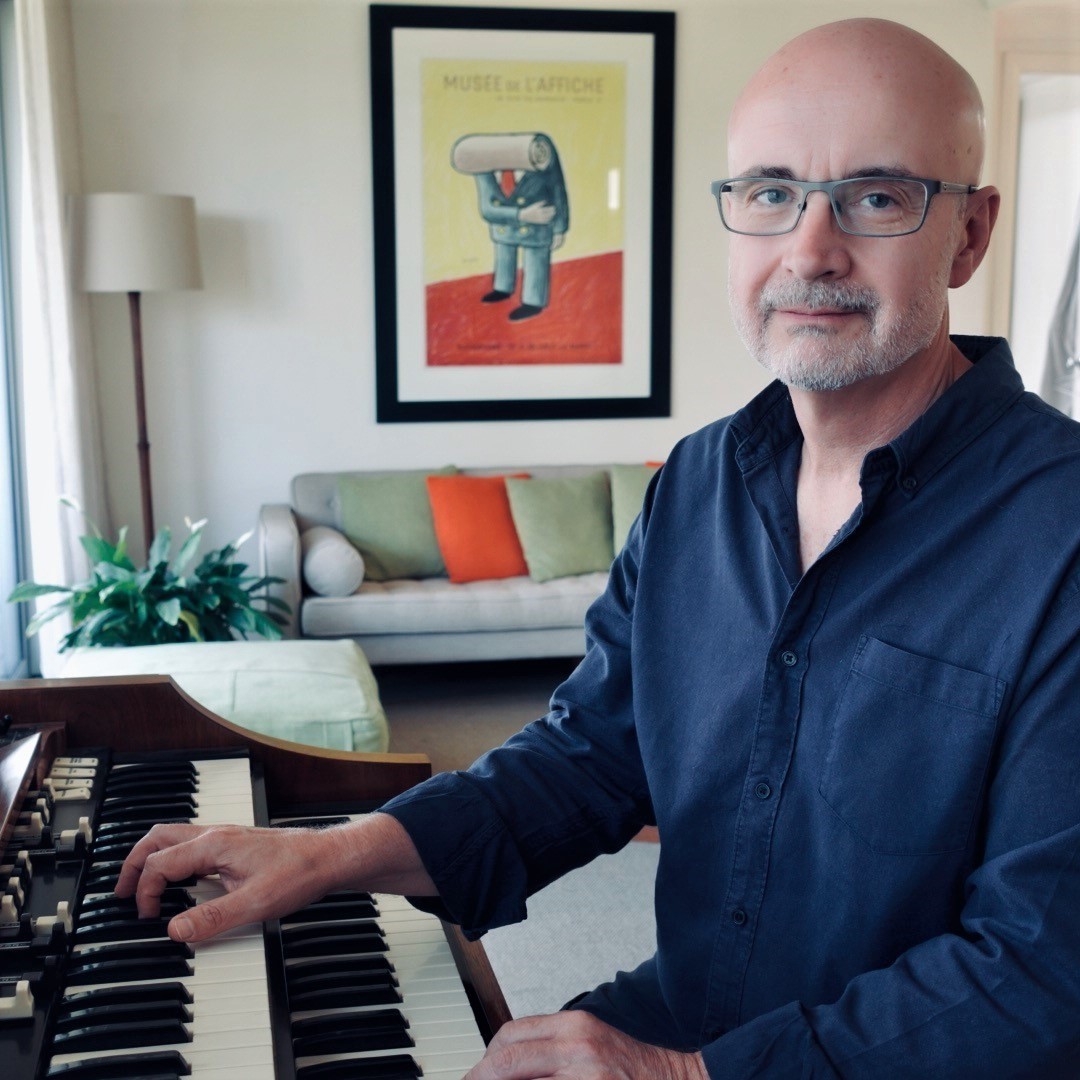
Local Creative - Darren Heinrich
A versatile organist, Darren Heinrich is a pianist and educator who holds a 1st class Honours degree in Jazz from the Sydney Conservatorium of Music. He has recently completed his PhD research in Jazz Organ Improvisation. His influences incorporate the entire spectrum of the Jazz idiom, from its earliest ragtime roots to modern jazz. He regularly gigs with his own trio and freelances with a wide variety of acts both locally and abroad.
Having studied extensively with Hammond masters Dr. Lonnie Smith and Tony Monaco, Darren wrote his undergraduate thesis comparing the styles of Jimmy Smith and Larry Young.
Playing in the eponymous Darren Heinrich Trio - a classic Hammond Organ combo with Organ, Guitar, and Drums - you'll find Darren playing around the Northern Beaches. Their music's emphasis is groove, with equal parts tradition and innovation. Original music by Darren forms a significant part of the band's repertoire, in addition to standards and blues.
Catch Darren playing with James Valentine's UPBEAT at the Opening Party for Manly Jazz Festival. 5 - 8pm, Friday 22 September at Manly Art Gallery & Museum. Book now
Where are your favourite places to play and listen to jazz in the Northern Beaches?
Avalon stands out to me as a place that has a lot of music happening, and the locals really support and appreciate the music. I love playing at Bookoccino on Friday nights, we set up right on the street and it’s a great atmosphere with all the people coming and going. Avalon Bowlo presents great jazz every Wednesday also. This otherwise sleepy suburb really delivers!
You’ve worked and studied with from some of the legends in jazz. One that stands out is Dr Lonnie Smith. What is something you took away from your experience with Dr Smith?
Lonnie was truly a magician, as there was always more music happening than what you could see his hands and feet playing at any one time. I still have no idea how he did that. He often said to me “You don’t play music, you play life”, and I’m still trying to figure that out and live by it. I was lucky enough to spend a lot of time playing duets with him, and I like to think a little of his sense of groove managed to rub off on me.
In 2018 you were awarded a PhD with a thesis titled “The Afrological Soul of Jazz Organ”. What interested you in researching and writing about your craft, as well as playing?
There were several motivations behind starting this research project. Australia doesn’t have the same history of playing jazz on the Hammond organ, so I was trying to figure out how to do it, while being totally isolated from urban African-American culture. When I started, the great Col Nolan was still playing a little, but by his own admission, he couldn’t, or perhaps wouldn’t teach. He was very encouraging though. Essentially, I was on my own with the records for reference. I soon realised there was so much to investigate and absorb, and felt totally committed artistically to being a jazz organist. I also realised that, given I was going to put in all the hours, I might as well do the study formally and receive some kind of qualification for it.
The Hammond Organ has a distinct sound. What do you enjoy about playing it, and what is possible with it that isn’t possible with other instruments?
While the Hammond is an electric instrument, it is totally ‘alive’, just like any acoustic instrument, as it has moving parts that generate the sound. When coupled with the legendary Leslie speaker, you have a sonic marvel at your fingertips. There is a weight and depth to the sound that is totally unique, and the dynamic range is incredible. Dr Lonnie used to describe it as being able to go from a gentle whisper to thunder and lightning – there’s not many instruments that can do that. It’s worth mentioning that it’s one of the few instruments that never goes out of tune – in fact, you can’t tune it, there’s no option for that. It’s an artistic and engineering marvel.
What excites you about improvisation in music, and why is it important?
Improvisation allows us to express ourselves in a profound way, and reveal who we really are. Jazz is a language and a tradition that we absorb and use to communicate with other musicians and the audience. A good jazz musician will never play a tune the same way once!
I find it exciting to play with musicians who, for example, don’t speak my language, but I can get to know them well simply by playing music. I’ve had this experience many times.
You describe your practice as being influenced by the spectrum of jazz, from its early ragtime roots to modern jazz. How would you describe your own style?
It’s difficult for me to say exactly, but I think I’m mostly a traditionalist in that I don’t want to lose connection with essential elements, such as the feeling of the blues and the propulsive groove of all forms of African American music. Having said that, I think it’s important to be open to any new musical vocabulary that comes along and make it your own.
The Manly Jazz Festival is iconic. Why do you play in it?
As I was getting into playing jazz, getting a gig at MJF was seen as a right of passage and an honour. I still feel that way. Now that I’ve been living on the Northern Beaches for 6 years, I’m almost a local, so it’s nice to be playing “in the ‘hood”
